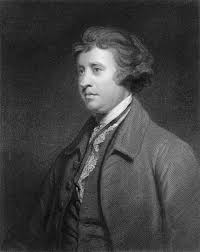Vaša košarica je trenutno prazna!
1239: Birth of Edward I

On June 13th, 1239, Edward I, also known as Edward Longshanks, was born. He would go on to become one of England’s most formidable monarchs, reigning for 35 years. His reign was marked by significant legal reforms, which earned him the title “English Justinian.” However, he is perhaps best known for his military campaigns, particularly his conquest of Wales and his efforts to assert English control over Scotland. His strategic brilliance and determined nature solidified the English monarchy’s power, leaving a lasting legacy on the kingdom’s territorial and legal landscape.
1397: Formation of the Kalmar Union

The Kalmar Union was established on June 13th, 1397, bringing together the kingdoms of Denmark, Norway, and Sweden under a single monarch. This ambitious political entity aimed to counter German economic and political influence in the Nordic region. While the union offered a period of relative peace and stability, it was also plagued by internal conflicts and power struggles, particularly between the Danish monarchy and the Swedish nobility. Despite its eventual dissolution in the early 16th century, the Kalmar Union represented a significant attempt at Nordic unity and profoundly influenced the region’s historical development.
1462: Vlad the Impaler’s Attack on the Ottomans

On June 13th, 1462, Vlad III Dracula, famously known as Vlad the Impaler, launched a daring night attack on the Ottoman encampment. This audacious move saw Vlad’s forces infiltrate the Ottoman camp, aiming to assassinate Sultan Mehmed II, the conqueror of Constantinople. Though the assassination attempt failed, the psychological impact of Vlad’s brutal tactics, particularly his widespread impalement of Ottoman prisoners, was immense. The sight of thousands of impaled Ottoman soldiers reportedly demoralized the Sultan’s army, forcing them to retreat from Wallachia. This event cemented Vlad’s fearsome reputation and became a chilling example of his strategic brutality.
1789: The Third Estate Becomes the National Assembly

A momentous step towards the French Revolution occurred on June 13th, 1789, when the Third Estate declared itself the National Assembly. This pivotal act marked a direct challenge to the authority of King Louis XVI and the traditional order of the Ancien Régime. Frustrated by their lack of representation and the political deadlock in the Estates-General, the commoners, representing the vast majority of the French population, decided to take matters into their own hands. This declaration, just days before the iconic Tennis Court Oath, signaled a revolutionary shift in power dynamics, laying the groundwork for the radical changes that would soon engulf France.
1797: Death of Edmund Burke

On June 13th, 1797, the world lost Edmund Burke, a prominent Irish statesman and political philosopher. Burke is widely regarded as one of the founders of modern conservatism. His most famous work, Reflections on the Revolution in France, sharply criticized the radicalism and violence of the French Revolution, advocating for gradual reform over revolutionary upheaval. He emphasized the importance of tradition, hierarchy, and established institutions for a stable society. His ideas profoundly influenced conservative thought and continue to be debated and studied in political philosophy today.
1913: Birth of Benjamin Britten

June 13th, 1913, saw the birth of Benjamin Britten, one of the most significant British composers of the 20th century. Britten’s vast output includes operas, choral works, orchestral pieces, and chamber music, often characterized by their dramatic intensity and lyrical beauty. His operas, such as Peter Grimes and Billy Budd, are particularly celebrated for their psychological depth and innovative musical language. Britten was also a passionate humanitarian and pacifist, themes often reflected in his compositions. His profound influence on contemporary music and his dedication to performing and promoting new works cemented his legacy as a towering figure in classical music.
1972: Beginning of the Watergate Affair

The infamous Watergate affair officially began on June 13th, 1972, with the arrest of five men for breaking into the Democratic National Committee headquarters at the Watergate Hotel in Washington, D.C. This seemingly minor burglary would soon unravel into a monumental political scandal that ultimately led to the resignation of President Richard Nixon. Investigations revealed a sophisticated web of political espionage, sabotage, and obstruction of justice by the Nixon administration. The scandal exposed deep-seated corruption at the highest levels of government and significantly eroded public trust in political institutions. Watergate remains a landmark event in American history, forever changing the landscape of political accountability.

